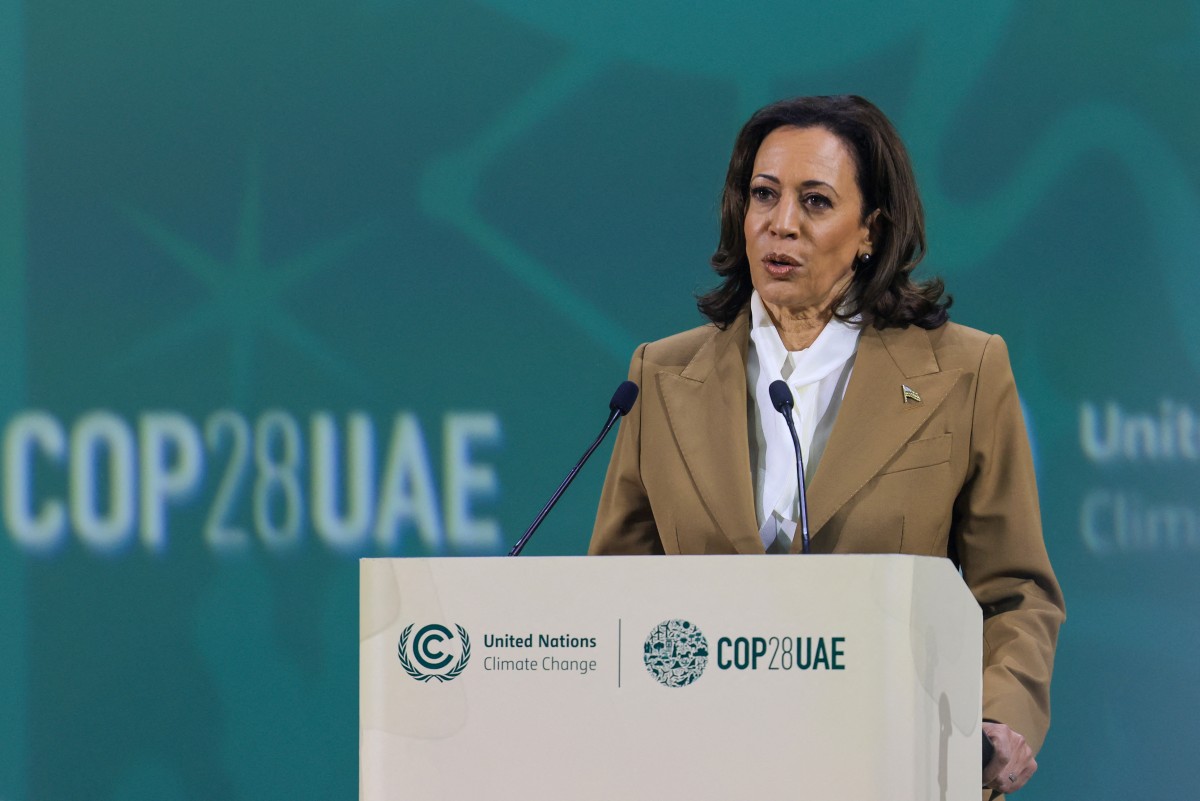Dubai, UAE – Vice President Kamala Harris told the UN’s COP28 conference on Saturday that the United States will contribute $3 billion to a global climate fund — its first pledge to it since 2014.
“Today, we are demonstrating through action how the world can and must meet this crisis,” Harris told the climate summit in Dubai.
The new money, which must be approved by the US Congress, will go into the Green Climate Fund (GCF), which was created in 2010.
The last US contribution to the fund for developing countries was made under then President Barack Obama, who committed $3 billion in 2014.
US President Joe Biden sent Harris in his place to COP28.
The world’s biggest climate fund funnels grants and loans for adaptation and mitigation projects in developing countries, such as solar panels in Pakistan or flood management in Haiti.
Prior to the US announcement, $13.5 billion had been pledged to the GCF.
The failure of wealthy nations to fulfill financial pledges to help developing nations cope with climate change has fueled tensions and mistrust at climate negotiations.
Developing countries least responsible for climate change are seeking support from richer polluting nations to adapt to the increasingly ferocious and expensive consequences of extreme weather, and for their transitions to cleaner energy sources.
The GCF plays a part in a separate promise by rich countries to supply $100 billion of climate financing to poorer nations annually. But that pledge was only likely met in 2022, two years late.








